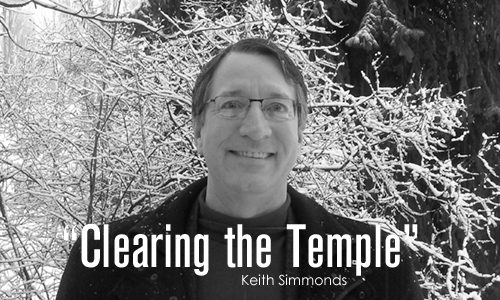What's in a light?
What’s in a light? The readings on the first Sunday of the new year focus on Epiphany. An epiphany being one of those moments in life when the light comes on. A comic book illustration light bulb radiating lines over the head of the character concerned. The time a concept in physics or math finally came clear. Or understanding what Jesus meant when he said some of us would be left shuddering in the outer darkness.
By our own choice.
The readings give us the epiphanic moment of the wise men, seeing Jesus in Bethlehem, bringing gifts fit for life and foreshadowing death, and then skipping town to avoid reporting in to Herod, a jealous and vicious king. The reading ends there. Wise men safely out of town, baby in the manger, surrounded by worship and gifts. We don’t delve into the horror of the baffled king, who, far from crying hallelujah, sends out the troops to take the lives of every child two years old and under. Where’s the light in that?
Joseph and Mary, like the wise men, are warned to flee. Jesus is safe in Egypt. And the innocents are slaughtered in their wake. Where’s the light in that?
One could offer the life of Jesus, lived in testimony to love as light to a darkened world. There’s truth in that. If Jesus came for anything, it was to bring light and love to a world inhabited by kings who could demand such slaughter, and soldiers who would carry it out. To assure both kings and common people that God’s love is enough, more than enough for all creation. That God’s will for us is a caring, blessing, sharing community of love.
But the innocents were slaughtered, and the slaughter continues.
We are told our world is a better one, that the incidence of innocent deaths is coming down. That tyrants are crashing to the ground, being replaced by better forms of government. That light is coming. And then we hear of children killing children. We read notes from slaves labouring in China, we see film of lives lost in factories in Bangladesh, we hear of struggles for rare earth in the Congo leading to death. Where is the light in that?
Where is the light? Why, I suppose the authors of the Gospels want us to know that the light is where it’s always been. In the story of the child in the manger who carries at once the promise of life and the assurance of Love, at the beginning, at the ending and at the beginning again.
Refusing to shy away from human fears and the cruelties they allow us to accept, we are told that even in the midst of this, reality is based in love, not hatred, hope, not fear, life, not death. We are meant for more than this, we can transcend even this, we can create a world of safety, hope, comfort and joy for all our people. We can do that. If the message of Jesus life, death and refusal to stay dead is about anything, it is about this.
Where’s the light in that? It’s up to each one of us to find our own moments of Epiphany. In ancient Bethlehem wise men bowed at the light brought into the world by the faithful response of an impoverished couple to the call of God and the Spirit of light. In our time ordinary people come together around the world, and right here, at home. Realizing epiphany in hungry bellies and stricken circumstances. Understanding, suddenly, that tyrants rule only where they are allowed to, standing together in squares of protest. Taking time to visit a neighbour in hospital, shovel a walk, speak with interest to the next person in line, or offer a blessing to someone who’s done something to lighten a day.
Where’s the light in our lives? That’s the question God would have us answer. That’s the world God would have us build.
Keith Simmonds is a diaconal minister in the Communities in Faith Pastoral Charge serving Beaver Valley, Rossland, Salmo and Trail.


























